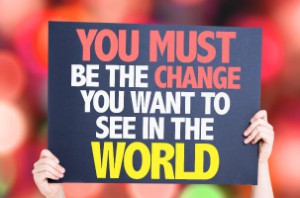 Paul Rosenberg - Freeman**Q**s Persepctive
Paul Rosenberg - Freeman**Q**s Persepctive
IPFS
Changing the World, Slowly
Written by Paul Rosenberg Subject: Property Rights
 Those of us who have seen beyond the noise and confusion of the present world system tend to become urgent about other people seeing the same things. And while this impulse may be understandable, it's not realistic. By refusing to let go of it, we frustrate ourselves and subvert our efforts to help others.
Those of us who have seen beyond the noise and confusion of the present world system tend to become urgent about other people seeing the same things. And while this impulse may be understandable, it's not realistic. By refusing to let go of it, we frustrate ourselves and subvert our efforts to help others.
It makes no sense to sprint when the race is actually a marathon.
The Hurry-Up Method Doesn't Work
First of all, the "accept everything I say right now" method spawns bitter intellectual battles, requiring people to say, "You're right and I'm wrong; the foundation of my life is stupid." People won't do that, and demanding it turns us into intellectual bullies.
Second, people change in steps, not all at once. And those who do change all at once usually are unstable people who will change in a different direction soon enough.
Third, the demand for fast change drives us into totalitarianism. The only fast way to get everyone to live our way is to force them… which is why hardened ideologues always love a strongman ruler – he can force everyone to do as they wish.
Finally, the demand for instant change – followed by continual rejections of that demand – spawns an "us against them" mindset. And that leads to all sorts of dark places.
What Does Work
What works is the slow, persistent planting of good seeds: showing kindness, expressing clear and pertinent ideas, absorbing the knee-jerk abuse, and persisting in this over many years. Whether we like this or not, it's the only thing that works.
The seeds we plant do have an effect, but it's a slow process. We plant the seeds, water them if we can, and still it takes years for the fruit to show up. But again, whether we like it or not, this is what works.
If you'd like a historical example of this, look no farther than the early Christians. At first routinely hated, they persisted in behaving well, loving each other, and loving everyone else. And over time, they won over millions of Romans. The Caesars stopped persecuting Christians mainly because the Roman people (including millions of non-Christians) knew that the Christians were decent people and objected to them being abused.
A Double Illustration
At some point in my 30s, I noticed there was very little elegance left in the world. The only elegance I saw was a fake kind, like dressing in very expensive clothing and showing off at very expensive events. But that's a demonstration of status rather than elegance.
I remembered real elegance, strangely enough, from the old "Negro" men and women I used to ride the bus with during my youth. These people had little money, riding city busses rather than driving cars, but they had authentic elegance. That is, they sat up straight, spoke clearly and well, and treated me, at perhaps nine years old, with kindness and with dignity. They also dressed nicely. It was easy to respect them.
I've never forgotten two of these people in particular, nor the dignity they displayed. So, this is the first illustration. Simple good behavior in daily life – in this case a few bus rides – left a lasting impression on a boy they didn't know and bore fruit that long outlasted their own lives.
And remembering that elegance led me to my second illustration.
At some point in the 1990s, and probably toward the middle of the decade, I noticed the inelegance of a very common interchange:
How are you?
I'm good.
Grammatically, this is wildly incorrect. Our health may be good, or we may do good, but we ourselves are not good – that would be like saying "I am goodness." The correct thing to say is, "I am well." That's far more elegant that "I'm good," and it couples very nicely with "thank you."
So, beginning roughly twenty years ago, I began to routinely say, "I'm well, thank you." And I found that I liked it a great deal; it added a bit of elegance to my life and to the world around me.
So far as I could tell, however, I was the only person in the city of Chicago – or anywhere else – who was saying this. People looked at me oddly almost every time I used the phrase. They seemed confused, but they did comprehend my meaning. And so, liking the phrase and liking to inject a bit of elegance into the world, I kept using it.
And then, in only the past five years or so, I've begun to hear it from strangers. It has, apparently, caught on. Of course it's unlikely that this change is wholly attributable to me, but it still seems that my persistence paid off.
Things change slowly. In this case it appears to have taken 15 years of persistence.
This is how improvement really works. We have to let go of our demands for instant progress and latch on to the beauty of slow but real change. As the Bible says in one place: By your endurance you will gain your lives.
Persist, my friends; run the marathon; it's what works.
* * * * *
If you've enjoyed Free-Man's Perspective or A Lodging of Wayfaring Men, you're going to love Paul Rosenberg's new novel, The Breaking Dawn.
It begins with an attack that crashes the investment markets, brings down economic systems, and divides the world. One part is dominated by mass surveillance and massive data systems: clean cities and empty minds… where everything is assured and everything is ordered. The other part is abandoned, without services, with limited communications, and shoved 50 years behind the times… but where human minds are left to find their own bearings.
You may never look at life the same way again.
Get it now at Amazon ($18.95) or on Kindle: ($5.99)
* * * * *
Paul Rosenberg
www.freemansperspective.com


























